#Abolishing the Janissary
Explore tagged Tumblr posts
Photo
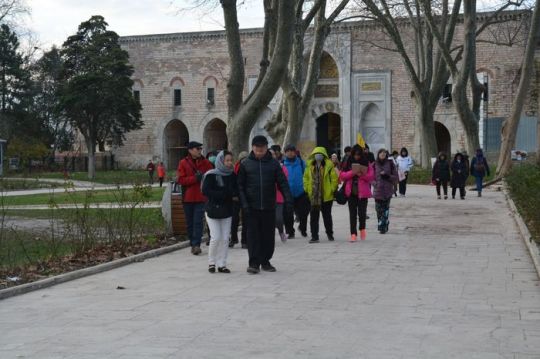
Abolishing the Janissary
Sultan Selim III initiated the reconstruction of the Ottoman army from scratch and addressed financial concerns. To fund the establishment of a modern army called the “Nizam-i Cedid,” the Janissary corps was disbanded, and a new system called “Irad-i Cedid” was introduced to finance these reforms.
Establishment of Irad-i Cedid
The decision was made to establish the Irad-i Cedid treasury, separate from the existing treasuries, to finance various military and state expenses. This treasury was funded through various sources, including taxes on tobacco, alcohol, and agricultural products, as well as special duties Istanbul Fun Tours.
Financial Regulations
To manage the revenues of the Irad-i Cedid treasury, a Directorate of Finance was established, and experienced officers were appointed to oversee its operations. Detailed regulations were outlined in a statute book to ensure proper management and accountability.
Sultan Selim’s Reforms
Sultan Selim III implemented extensive reforms in administration, economy, trade, politics, and diplomacy, inspired by European methods. He established permanent embassies in major European capitals and introduced a balanced foreign policy, facilitating Western influence in the Ottoman Empire.
Diplomatic Achievements
Permanent embassies in European capitals, including Paris and London, played a crucial role in enhancing Ottoman diplomacy. Notably, Ke|it Pasha served as an ambassador for an extended period, contributing to diplomatic advancements and the establishment of Western-standard diplomatic training.
Legacy of Ottoman Diplomacy
The Ottoman diplomatic efforts, bolstered by ambassadors like Ke|it Pasha and institutions such as the School of Diplomacy, paved the way for the rise of Ottoman statesmen. Ultimately, these diplomatic foundations laid the groundwork for the modern Republic of Turkey under the leadership of Mustafa Kemal Atatürk and his associates.
0 notes
Photo
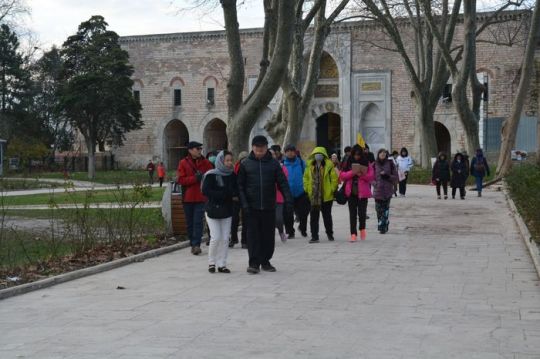
Abolishing the Janissary
Sultan Selim III initiated the reconstruction of the Ottoman army from scratch and addressed financial concerns. To fund the establishment of a modern army called the “Nizam-i Cedid,” the Janissary corps was disbanded, and a new system called “Irad-i Cedid” was introduced to finance these reforms.
Establishment of Irad-i Cedid
The decision was made to establish the Irad-i Cedid treasury, separate from the existing treasuries, to finance various military and state expenses. This treasury was funded through various sources, including taxes on tobacco, alcohol, and agricultural products, as well as special duties Istanbul Fun Tours.
Financial Regulations
To manage the revenues of the Irad-i Cedid treasury, a Directorate of Finance was established, and experienced officers were appointed to oversee its operations. Detailed regulations were outlined in a statute book to ensure proper management and accountability.
Sultan Selim’s Reforms
Sultan Selim III implemented extensive reforms in administration, economy, trade, politics, and diplomacy, inspired by European methods. He established permanent embassies in major European capitals and introduced a balanced foreign policy, facilitating Western influence in the Ottoman Empire.
Diplomatic Achievements
Permanent embassies in European capitals, including Paris and London, played a crucial role in enhancing Ottoman diplomacy. Notably, Ke|it Pasha served as an ambassador for an extended period, contributing to diplomatic advancements and the establishment of Western-standard diplomatic training.
Legacy of Ottoman Diplomacy
The Ottoman diplomatic efforts, bolstered by ambassadors like Ke|it Pasha and institutions such as the School of Diplomacy, paved the way for the rise of Ottoman statesmen. Ultimately, these diplomatic foundations laid the groundwork for the modern Republic of Turkey under the leadership of Mustafa Kemal Atatürk and his associates.
0 notes
Photo

Abolishing the Janissary
Sultan Selim III initiated the reconstruction of the Ottoman army from scratch and addressed financial concerns. To fund the establishment of a modern army called the “Nizam-i Cedid,” the Janissary corps was disbanded, and a new system called “Irad-i Cedid” was introduced to finance these reforms.
Establishment of Irad-i Cedid
The decision was made to establish the Irad-i Cedid treasury, separate from the existing treasuries, to finance various military and state expenses. This treasury was funded through various sources, including taxes on tobacco, alcohol, and agricultural products, as well as special duties Istanbul Fun Tours.
Financial Regulations
To manage the revenues of the Irad-i Cedid treasury, a Directorate of Finance was established, and experienced officers were appointed to oversee its operations. Detailed regulations were outlined in a statute book to ensure proper management and accountability.
Sultan Selim’s Reforms
Sultan Selim III implemented extensive reforms in administration, economy, trade, politics, and diplomacy, inspired by European methods. He established permanent embassies in major European capitals and introduced a balanced foreign policy, facilitating Western influence in the Ottoman Empire.
Diplomatic Achievements
Permanent embassies in European capitals, including Paris and London, played a crucial role in enhancing Ottoman diplomacy. Notably, Ke|it Pasha served as an ambassador for an extended period, contributing to diplomatic advancements and the establishment of Western-standard diplomatic training.
Legacy of Ottoman Diplomacy
The Ottoman diplomatic efforts, bolstered by ambassadors like Ke|it Pasha and institutions such as the School of Diplomacy, paved the way for the rise of Ottoman statesmen. Ultimately, these diplomatic foundations laid the groundwork for the modern Republic of Turkey under the leadership of Mustafa Kemal Atatürk and his associates.
0 notes
Photo

Abolishing the Janissary
Sultan Selim III initiated the reconstruction of the Ottoman army from scratch and addressed financial concerns. To fund the establishment of a modern army called the “Nizam-i Cedid,” the Janissary corps was disbanded, and a new system called “Irad-i Cedid” was introduced to finance these reforms.
Establishment of Irad-i Cedid
The decision was made to establish the Irad-i Cedid treasury, separate from the existing treasuries, to finance various military and state expenses. This treasury was funded through various sources, including taxes on tobacco, alcohol, and agricultural products, as well as special duties Istanbul Fun Tours.
Financial Regulations
To manage the revenues of the Irad-i Cedid treasury, a Directorate of Finance was established, and experienced officers were appointed to oversee its operations. Detailed regulations were outlined in a statute book to ensure proper management and accountability.
Sultan Selim’s Reforms
Sultan Selim III implemented extensive reforms in administration, economy, trade, politics, and diplomacy, inspired by European methods. He established permanent embassies in major European capitals and introduced a balanced foreign policy, facilitating Western influence in the Ottoman Empire.
Diplomatic Achievements
Permanent embassies in European capitals, including Paris and London, played a crucial role in enhancing Ottoman diplomacy. Notably, Ke|it Pasha served as an ambassador for an extended period, contributing to diplomatic advancements and the establishment of Western-standard diplomatic training.
Legacy of Ottoman Diplomacy
The Ottoman diplomatic efforts, bolstered by ambassadors like Ke|it Pasha and institutions such as the School of Diplomacy, paved the way for the rise of Ottoman statesmen. Ultimately, these diplomatic foundations laid the groundwork for the modern Republic of Turkey under the leadership of Mustafa Kemal Atatürk and his associates.
0 notes
Photo
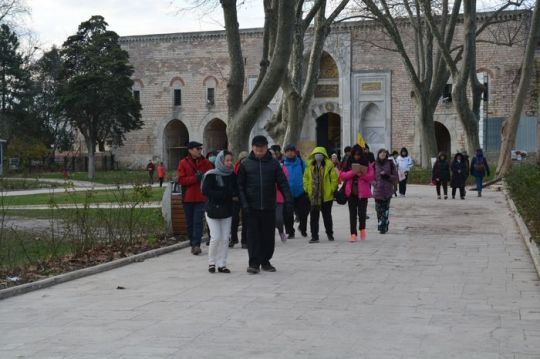
Abolishing the Janissary
Sultan Selim III initiated the reconstruction of the Ottoman army from scratch and addressed financial concerns. To fund the establishment of a modern army called the “Nizam-i Cedid,” the Janissary corps was disbanded, and a new system called “Irad-i Cedid” was introduced to finance these reforms.
Establishment of Irad-i Cedid
The decision was made to establish the Irad-i Cedid treasury, separate from the existing treasuries, to finance various military and state expenses. This treasury was funded through various sources, including taxes on tobacco, alcohol, and agricultural products, as well as special duties Istanbul Fun Tours.
Financial Regulations
To manage the revenues of the Irad-i Cedid treasury, a Directorate of Finance was established, and experienced officers were appointed to oversee its operations. Detailed regulations were outlined in a statute book to ensure proper management and accountability.
Sultan Selim’s Reforms
Sultan Selim III implemented extensive reforms in administration, economy, trade, politics, and diplomacy, inspired by European methods. He established permanent embassies in major European capitals and introduced a balanced foreign policy, facilitating Western influence in the Ottoman Empire.
Diplomatic Achievements
Permanent embassies in European capitals, including Paris and London, played a crucial role in enhancing Ottoman diplomacy. Notably, Ke|it Pasha served as an ambassador for an extended period, contributing to diplomatic advancements and the establishment of Western-standard diplomatic training.
Legacy of Ottoman Diplomacy
The Ottoman diplomatic efforts, bolstered by ambassadors like Ke|it Pasha and institutions such as the School of Diplomacy, paved the way for the rise of Ottoman statesmen. Ultimately, these diplomatic foundations laid the groundwork for the modern Republic of Turkey under the leadership of Mustafa Kemal Atatürk and his associates.
0 notes
Photo

Abolishing the Janissary
Sultan Selim III initiated the reconstruction of the Ottoman army from scratch and addressed financial concerns. To fund the establishment of a modern army called the “Nizam-i Cedid,” the Janissary corps was disbanded, and a new system called “Irad-i Cedid” was introduced to finance these reforms.
Establishment of Irad-i Cedid
The decision was made to establish the Irad-i Cedid treasury, separate from the existing treasuries, to finance various military and state expenses. This treasury was funded through various sources, including taxes on tobacco, alcohol, and agricultural products, as well as special duties Istanbul Fun Tours.
Financial Regulations
To manage the revenues of the Irad-i Cedid treasury, a Directorate of Finance was established, and experienced officers were appointed to oversee its operations. Detailed regulations were outlined in a statute book to ensure proper management and accountability.
Sultan Selim’s Reforms
Sultan Selim III implemented extensive reforms in administration, economy, trade, politics, and diplomacy, inspired by European methods. He established permanent embassies in major European capitals and introduced a balanced foreign policy, facilitating Western influence in the Ottoman Empire.
Diplomatic Achievements
Permanent embassies in European capitals, including Paris and London, played a crucial role in enhancing Ottoman diplomacy. Notably, Ke|it Pasha served as an ambassador for an extended period, contributing to diplomatic advancements and the establishment of Western-standard diplomatic training.
Legacy of Ottoman Diplomacy
The Ottoman diplomatic efforts, bolstered by ambassadors like Ke|it Pasha and institutions such as the School of Diplomacy, paved the way for the rise of Ottoman statesmen. Ultimately, these diplomatic foundations laid the groundwork for the modern Republic of Turkey under the leadership of Mustafa Kemal Atatürk and his associates.
0 notes
Photo

Abolishing the Janissary
Sultan Selim III initiated the reconstruction of the Ottoman army from scratch and addressed financial concerns. To fund the establishment of a modern army called the “Nizam-i Cedid,” the Janissary corps was disbanded, and a new system called “Irad-i Cedid” was introduced to finance these reforms.
Establishment of Irad-i Cedid
The decision was made to establish the Irad-i Cedid treasury, separate from the existing treasuries, to finance various military and state expenses. This treasury was funded through various sources, including taxes on tobacco, alcohol, and agricultural products, as well as special duties Istanbul Fun Tours.
Financial Regulations
To manage the revenues of the Irad-i Cedid treasury, a Directorate of Finance was established, and experienced officers were appointed to oversee its operations. Detailed regulations were outlined in a statute book to ensure proper management and accountability.
Sultan Selim’s Reforms
Sultan Selim III implemented extensive reforms in administration, economy, trade, politics, and diplomacy, inspired by European methods. He established permanent embassies in major European capitals and introduced a balanced foreign policy, facilitating Western influence in the Ottoman Empire.
Diplomatic Achievements
Permanent embassies in European capitals, including Paris and London, played a crucial role in enhancing Ottoman diplomacy. Notably, Ke|it Pasha served as an ambassador for an extended period, contributing to diplomatic advancements and the establishment of Western-standard diplomatic training.
Legacy of Ottoman Diplomacy
The Ottoman diplomatic efforts, bolstered by ambassadors like Ke|it Pasha and institutions such as the School of Diplomacy, paved the way for the rise of Ottoman statesmen. Ultimately, these diplomatic foundations laid the groundwork for the modern Republic of Turkey under the leadership of Mustafa Kemal Atatürk and his associates.
0 notes
Photo

Abolishing the Janissary
Sultan Selim III initiated the reconstruction of the Ottoman army from scratch and addressed financial concerns. To fund the establishment of a modern army called the “Nizam-i Cedid,” the Janissary corps was disbanded, and a new system called “Irad-i Cedid” was introduced to finance these reforms.
Establishment of Irad-i Cedid
The decision was made to establish the Irad-i Cedid treasury, separate from the existing treasuries, to finance various military and state expenses. This treasury was funded through various sources, including taxes on tobacco, alcohol, and agricultural products, as well as special duties Istanbul Fun Tours.
Financial Regulations
To manage the revenues of the Irad-i Cedid treasury, a Directorate of Finance was established, and experienced officers were appointed to oversee its operations. Detailed regulations were outlined in a statute book to ensure proper management and accountability.
Sultan Selim’s Reforms
Sultan Selim III implemented extensive reforms in administration, economy, trade, politics, and diplomacy, inspired by European methods. He established permanent embassies in major European capitals and introduced a balanced foreign policy, facilitating Western influence in the Ottoman Empire.
Diplomatic Achievements
Permanent embassies in European capitals, including Paris and London, played a crucial role in enhancing Ottoman diplomacy. Notably, Ke|it Pasha served as an ambassador for an extended period, contributing to diplomatic advancements and the establishment of Western-standard diplomatic training.
Legacy of Ottoman Diplomacy
The Ottoman diplomatic efforts, bolstered by ambassadors like Ke|it Pasha and institutions such as the School of Diplomacy, paved the way for the rise of Ottoman statesmen. Ultimately, these diplomatic foundations laid the groundwork for the modern Republic of Turkey under the leadership of Mustafa Kemal Atatürk and his associates.
0 notes
Photo

Abolishing the Janissary
Sultan Selim III initiated the reconstruction of the Ottoman army from scratch and addressed financial concerns. To fund the establishment of a modern army called the “Nizam-i Cedid,” the Janissary corps was disbanded, and a new system called “Irad-i Cedid” was introduced to finance these reforms.
Establishment of Irad-i Cedid
The decision was made to establish the Irad-i Cedid treasury, separate from the existing treasuries, to finance various military and state expenses. This treasury was funded through various sources, including taxes on tobacco, alcohol, and agricultural products, as well as special duties Istanbul Fun Tours.
Financial Regulations
To manage the revenues of the Irad-i Cedid treasury, a Directorate of Finance was established, and experienced officers were appointed to oversee its operations. Detailed regulations were outlined in a statute book to ensure proper management and accountability.
Sultan Selim’s Reforms
Sultan Selim III implemented extensive reforms in administration, economy, trade, politics, and diplomacy, inspired by European methods. He established permanent embassies in major European capitals and introduced a balanced foreign policy, facilitating Western influence in the Ottoman Empire.
Diplomatic Achievements
Permanent embassies in European capitals, including Paris and London, played a crucial role in enhancing Ottoman diplomacy. Notably, Ke|it Pasha served as an ambassador for an extended period, contributing to diplomatic advancements and the establishment of Western-standard diplomatic training.
Legacy of Ottoman Diplomacy
The Ottoman diplomatic efforts, bolstered by ambassadors like Ke|it Pasha and institutions such as the School of Diplomacy, paved the way for the rise of Ottoman statesmen. Ultimately, these diplomatic foundations laid the groundwork for the modern Republic of Turkey under the leadership of Mustafa Kemal Atatürk and his associates.
0 notes
Photo
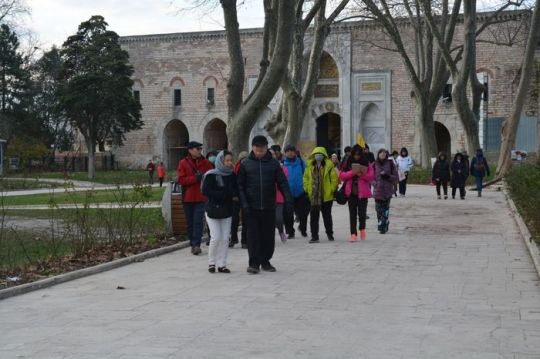
Abolishing the Janissary
Sultan Selim III initiated the reconstruction of the Ottoman army from scratch and addressed financial concerns. To fund the establishment of a modern army called the “Nizam-i Cedid,” the Janissary corps was disbanded, and a new system called “Irad-i Cedid” was introduced to finance these reforms.
Establishment of Irad-i Cedid
The decision was made to establish the Irad-i Cedid treasury, separate from the existing treasuries, to finance various military and state expenses. This treasury was funded through various sources, including taxes on tobacco, alcohol, and agricultural products, as well as special duties Istanbul Fun Tours.
Financial Regulations
To manage the revenues of the Irad-i Cedid treasury, a Directorate of Finance was established, and experienced officers were appointed to oversee its operations. Detailed regulations were outlined in a statute book to ensure proper management and accountability.
Sultan Selim’s Reforms
Sultan Selim III implemented extensive reforms in administration, economy, trade, politics, and diplomacy, inspired by European methods. He established permanent embassies in major European capitals and introduced a balanced foreign policy, facilitating Western influence in the Ottoman Empire.
Diplomatic Achievements
Permanent embassies in European capitals, including Paris and London, played a crucial role in enhancing Ottoman diplomacy. Notably, Ke|it Pasha served as an ambassador for an extended period, contributing to diplomatic advancements and the establishment of Western-standard diplomatic training.
Legacy of Ottoman Diplomacy
The Ottoman diplomatic efforts, bolstered by ambassadors like Ke|it Pasha and institutions such as the School of Diplomacy, paved the way for the rise of Ottoman statesmen. Ultimately, these diplomatic foundations laid the groundwork for the modern Republic of Turkey under the leadership of Mustafa Kemal Atatürk and his associates.
0 notes
Photo

Abolishing the Janissary
Sultan Selim III initiated the reconstruction of the Ottoman army from scratch and addressed financial concerns. To fund the establishment of a modern army called the “Nizam-i Cedid,” the Janissary corps was disbanded, and a new system called “Irad-i Cedid” was introduced to finance these reforms.
Establishment of Irad-i Cedid
The decision was made to establish the Irad-i Cedid treasury, separate from the existing treasuries, to finance various military and state expenses. This treasury was funded through various sources, including taxes on tobacco, alcohol, and agricultural products, as well as special duties Istanbul Fun Tours.
Financial Regulations
To manage the revenues of the Irad-i Cedid treasury, a Directorate of Finance was established, and experienced officers were appointed to oversee its operations. Detailed regulations were outlined in a statute book to ensure proper management and accountability.
Sultan Selim’s Reforms
Sultan Selim III implemented extensive reforms in administration, economy, trade, politics, and diplomacy, inspired by European methods. He established permanent embassies in major European capitals and introduced a balanced foreign policy, facilitating Western influence in the Ottoman Empire.
Diplomatic Achievements
Permanent embassies in European capitals, including Paris and London, played a crucial role in enhancing Ottoman diplomacy. Notably, Ke|it Pasha served as an ambassador for an extended period, contributing to diplomatic advancements and the establishment of Western-standard diplomatic training.
Legacy of Ottoman Diplomacy
The Ottoman diplomatic efforts, bolstered by ambassadors like Ke|it Pasha and institutions such as the School of Diplomacy, paved the way for the rise of Ottoman statesmen. Ultimately, these diplomatic foundations laid the groundwork for the modern Republic of Turkey under the leadership of Mustafa Kemal Atatürk and his associates.
0 notes
Photo
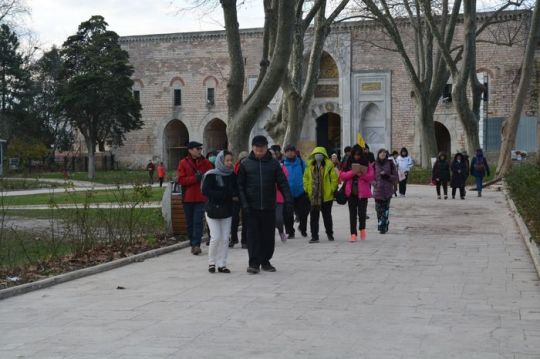
Abolishing the Janissary
Sultan Selim III initiated the reconstruction of the Ottoman army from scratch and addressed financial concerns. To fund the establishment of a modern army called the “Nizam-i Cedid,” the Janissary corps was disbanded, and a new system called “Irad-i Cedid” was introduced to finance these reforms.
Establishment of Irad-i Cedid
The decision was made to establish the Irad-i Cedid treasury, separate from the existing treasuries, to finance various military and state expenses. This treasury was funded through various sources, including taxes on tobacco, alcohol, and agricultural products, as well as special duties Istanbul Fun Tours.
Financial Regulations
To manage the revenues of the Irad-i Cedid treasury, a Directorate of Finance was established, and experienced officers were appointed to oversee its operations. Detailed regulations were outlined in a statute book to ensure proper management and accountability.
Sultan Selim’s Reforms
Sultan Selim III implemented extensive reforms in administration, economy, trade, politics, and diplomacy, inspired by European methods. He established permanent embassies in major European capitals and introduced a balanced foreign policy, facilitating Western influence in the Ottoman Empire.
Diplomatic Achievements
Permanent embassies in European capitals, including Paris and London, played a crucial role in enhancing Ottoman diplomacy. Notably, Ke|it Pasha served as an ambassador for an extended period, contributing to diplomatic advancements and the establishment of Western-standard diplomatic training.
Legacy of Ottoman Diplomacy
The Ottoman diplomatic efforts, bolstered by ambassadors like Ke|it Pasha and institutions such as the School of Diplomacy, paved the way for the rise of Ottoman statesmen. Ultimately, these diplomatic foundations laid the groundwork for the modern Republic of Turkey under the leadership of Mustafa Kemal Atatürk and his associates.
0 notes
Text
The great Bosnian uprising is literally just Enis' autism acting up since it was Bosnian beys against reforms and modernization of the Ottoman empire and a common trait of autism is struggling with change. I can just imagine him saying "I barely got used to the current state and now you're changing everything??" when Turkey brought it up in front of him.
(Also the reforms were to abolish the janissaries and Ilija would've been one so Enis was upset because he was used to seeing him like that but now he wouldn't be one anymore and that felt like losing his son)
24 notes
·
View notes
Text
WIP Wednesday
(It almost Thursday where I live but who cares about dates, right? 😂)
Looking at me slowing removing the dust from my WIP folder lol. Here are a few WIPs I've been working on lately:
1. Closer [working title] | Prince Hamid X MC (Daphne Wang) - Desire & Decorum Modern Day AU
"So you have family in Europe too!"
"I do. My whole family was exiled after World War One. My grandfather grew up here in the US, but most part of the family lived in Europe. He was visiting one of his cousins in London when he met my grandmother. She was a History teacher and she was fascinated by all his stories about the sultanate and the janissary."
"She wasn't wrong. It does sound fascinating. But why was your family exiled after the war?"
"It's what usually happens to royal families when monarchy is abolished. That is to say, when they get a chance to flee the country before being executed."
Daphne stared wide eyed at him.
"If they stayed, I probably wouldn't be sitting here having tea and baked goods with you."
"Oh..." she mumbled in realisation. "You really are a descendant from the Ottoman sultans."
"I am."
"You could've been a sultan!"
"I'd be a prince, actually. My father is very much alive, thankfully."
2. Mending Fences | Hana Lee, MC (Jade Bourbon)
By the time Jade walked into the room, everyone minus Liam were already there on their seats. Leo, Juliet and Drake seemed engaged into an deep conversation, while Maxwell and Hana had a small talk with the other ladies.
All of them acknowledged her presence with her polite smiles and wishing her good morning, except for three people. Madeleine, of course, just seized her from head to toe, probably disappointed the future queen wasn't poorly dressed as she expected. Drake glared at her for a brief moment then returned to their conversation. Hana's reaction, however, was different from anyone else's. Despite not saying anything, the sorrow in her eyes spoke volumes. Perhaps, it was about time for Jade to take the first step ans start mending fences.
Tagging @jerzwriter @lilyoffandoms @missameliep @noesapphic @thosehallowedhalls and anyone else who wants to share snippets of WIPs
5 notes
·
View notes
Photo

Sultan Murad IV - Reign and Legacy
Repairing and Enriching Sacred Sites
The Tombs of Imam-i Azam and Sheikh Abdulkadir Geylani, revered figures in Islam, underwent extensive repairs supervised by Sheikhulislam. They were adorned with opulent gold and silver lamps along with jewelry, enhancing their grandeur and significance. Additionally, Mustafa Pasha, the trusted guard of Sultan Murad IV, displayed profound devotion by sending a diamond to adorn the Prophet’s Tomb in Medina (Ravza-i Mutaharra).
International Diplomacy and Remarkable Gifts
Sultan Murad IV’s reign saw prosperity that extended its influence to the farthest reaches of the east. An envoy from India arrived in Musul bearing lavish gifts while the Sultan was en route from Baghdad to Istanbul. Among these gifts was an exquisitely decorated belt valued at fifty thousand piasters and a unique helmet crafted from elephant’s ear and rhinoceros hide, reputed to be impervious to bullets and swords. In a display of his prowess, Sultan Murad IV pierced the helmet effortlessly with his spear, filling it with gold florins before returning it to the Indian Sovereign’s palace.
Restoring Order and Stability
Sultan Murad IV’s rule was marked by his unwavering authority, which he wielded to maintain order within the empire, rescuing it from the brink of collapse. However, the toll of such authoritarianism took a toll on him, leaving him exhausted. Upon his brother Sultan Ibrahim’s ascension to the throne, order had already been established, aided by a treasury brimming with resources.
The Reformative Era Under Sultan Ibrahim
During Sultan Ibrahim’s reign, characterized by historians as a period of folly, Kara Mustafa Pasha, a seasoned vizier, served as Grand Vizier. Under his leadership Istanbul Walking Tour, the treasury remained stable, intoxication was abolished, and administrative reforms were implemented, including city registrations and the first census. He ensured timely payments for Janissaries and Spahis, with salaries fixed at eighty aspers of pure silver. Moreover, he introduced the practice of allocating clothing aid annually from the treasury. Despite his remarkable achievements, Kara Mustafa Pasha met an untimely end through execution in 1053.
Legacy and Conclusion
Sultan Murad IV’s reign left an indelible mark on Ottoman history, marked by prosperity, diplomatic prowess, and authoritative governance. His legacy endured through the reforms initiated under Sultan Ibrahim, underscoring the significance of stable governance and administrative efficiency in sustaining an empire.
3 notes
·
View notes
Photo
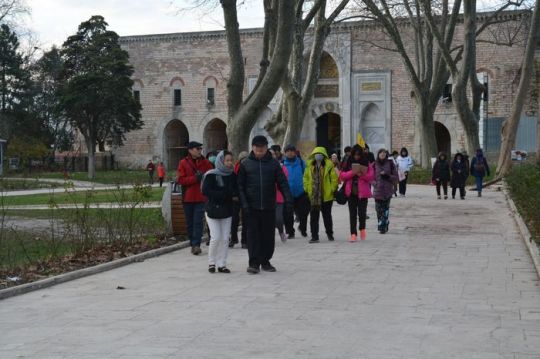
Abolishing the Janissary
Sultan Selim III initiated the reconstruction of the Ottoman army from scratch and addressed financial concerns. To fund the establishment of a modern army called the “Nizam-i Cedid,” the Janissary corps was disbanded, and a new system called “Irad-i Cedid” was introduced to finance these reforms.
Establishment of Irad-i Cedid
The decision was made to establish the Irad-i Cedid treasury, separate from the existing treasuries, to finance various military and state expenses. This treasury was funded through various sources, including taxes on tobacco, alcohol, and agricultural products, as well as special duties Istanbul Fun Tours.
Financial Regulations
To manage the revenues of the Irad-i Cedid treasury, a Directorate of Finance was established, and experienced officers were appointed to oversee its operations. Detailed regulations were outlined in a statute book to ensure proper management and accountability.
Sultan Selim’s Reforms
Sultan Selim III implemented extensive reforms in administration, economy, trade, politics, and diplomacy, inspired by European methods. He established permanent embassies in major European capitals and introduced a balanced foreign policy, facilitating Western influence in the Ottoman Empire.
Diplomatic Achievements
Permanent embassies in European capitals, including Paris and London, played a crucial role in enhancing Ottoman diplomacy. Notably, Ke|it Pasha served as an ambassador for an extended period, contributing to diplomatic advancements and the establishment of Western-standard diplomatic training.
Legacy of Ottoman Diplomacy
The Ottoman diplomatic efforts, bolstered by ambassadors like Ke|it Pasha and institutions such as the School of Diplomacy, paved the way for the rise of Ottoman statesmen. Ultimately, these diplomatic foundations laid the groundwork for the modern Republic of Turkey under the leadership of Mustafa Kemal Atatürk and his associates.
0 notes